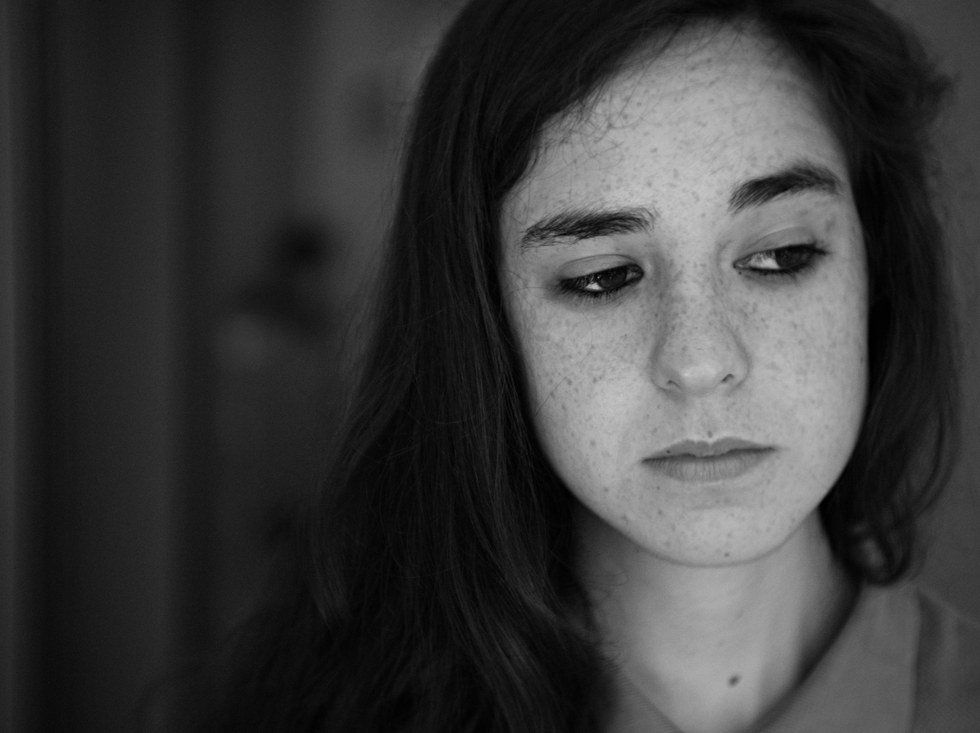I'm sure every girl at one point or another has made a self-deprecating comment about themselves, which loved ones and friends quickly amend by showering the girl in compliments. For me I always have a negative comment about myself at the ready and even when friends try to make me feel better I at times do not believe them. I am overweight, brown hair and brown eyes, and despite my singing ability, I never really concerned myself special. I'm uncomfortable when people look like they are staring at me and I don't like presentations because I feel like people are judging me on my appearance rather than my words.
It didn't hit me until recently why that might be. This past semester, my papers have focused on the media and how it affects both women and men. Different kinds of media, like commercials or billboards or even products are not only trying to sell you a product, they are subconsciously selling you an idea of society that they feel must be truth. At least in advertising, women for decades have changed drastically, often presenting ideas as sexual beings wanting to be dominated by the men around them or women are seen as a cold dominating “bitch” according to Jean Kilbourne, author of “Two Ways Women Can Get Hurt: Advertising and Violence.”
Thanks to these advertisements, a false credibility and sense is given to the idea of women. For example, a woman’s rapist is let off scott free because she was wearing Victoria Secret panties, and apparently wearing those means she was asking for it. Lots of advertising have made a backwards view of women, telling men that not only should they ignore the word “no,” but be violent and uncaring towards them because that is what “the women” want.
Sometimes different kinds of media tend to plant false ideals in the minds of women, men, and children everywhere, as it makes them think that they need to strive to imitate this false role models in order to fit into society. Elline Lipkin, writer of “Girls’ Bodies, Girls’ Selves: Body Image, Identity, and Sexuality”, says that especially for women, they are expected to be these flawless, thin, clear skinned, alluring beings, and to not fit that gender stereotype can be quite alarming and damaging to young impressionable girls. Especially when the media around them supports this stereotype.
We, as humans, are surrounded by media. We have TV's, computers, our cellphones, the radio, and billboards, media never leaves us alone practically. When Kilbourne asked various high school students about what it would be like to be the other gender, most boys said “they would rather be dead” (Kilbourne 506).
How various forms of media portray women and men need to change. I want to feel confident when I enter a room. I want to feel beautiful and believe the compliments people give me. I shouldn't have to feel like an outcast or feel wrong for not being what the media thinks all women should be. I have a feeling I'm not the only one tired of feeling like this either.
For now, I and countless others need to know that the media is wrong about us. Not all of us are supermodels that want the bad boys to sweep them off their feet and only eat bread and water. I like mozzarella sticks. And I shouldn't be ashamed of that.
Kilbourne, Jean, Two Ways a Woman Can Get Hurt, From Inquiry to Academic Writing: A Text and Reader. 3rd ed. Ed. Stuart Greene and April Lidinsky. Boston: Bedford/St. Martin’s, 2015. 489-511. Print.
Lipkin, Elline. “Girls’ Bodies, Girls’ Selves: Body Image, Identity, and Sexuality.” From Inquiry to Academic Writing: A Text and Reader. 3rd ed. Ed. Stuart Greene and April Lidinsky. Boston: Bedford/St Martin’s, 2015. 595-605. Print.





















